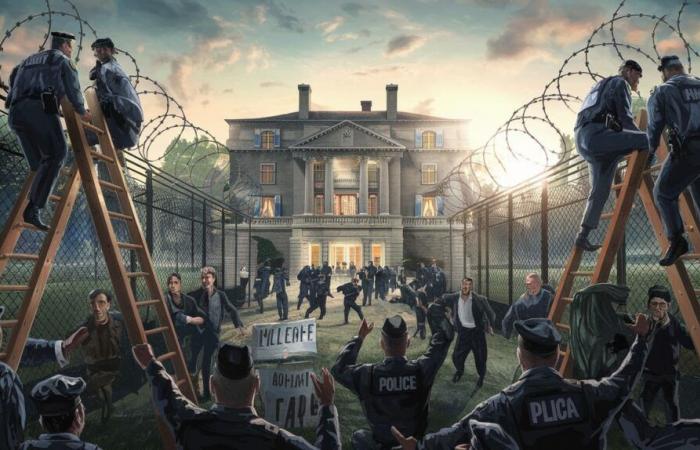Surreal scene in Seoul this morning. A hundred police officers stormed the villa of deposed President Yoon Suk Yeol to arrest him, despite resistance from…
An unprecedented event took place in the South Korean capital this Wednesday. At first light, around a hundred heavily armed police officers stormed the luxurious villa of deposed President Yoon Suk Yeol to arrest him. A muscular operation that sounds like a clap of thunder in the troubled political sky of Seoul.
The residence transformed into a bunker
Perched on a hill in the upscale district of Hannam-dong, Yoon Suk Yeol’s residence had transformed in recent days into a veritable fortress. Surrounded by barbed wire like a bunker in hostile territory, it had become the last bastion of resistance for the former prosecutor propelled to the head of state. A final defense before the fall.
To reach their target, the police had to deploy major resources. Equipped with ladders, they scaled the fences to the cheers and jeers of the crowd. On one side, thousands of supporters chanting slogans of support inspired by Donald Trump. On the other, opponents decry “the monster” who plunged the country into turmoil by declaring martial law.
A “historic day” heavy with symbols
For many observers, this day of January 15 will be remembered as a “historic day”. Never before has a head of state been apprehended in this way, in a display of force worthy of a political thriller. A strong image that says a lot about the crisis facing the young South Korean democracy.
It’s a surreal, almost Hollywood-like scene. It’s hard to believe that this is really happening here, in South Korea, a modern and peaceful country.
An onlooker witnessing the scene
Yoon Suk Yeol, from glory to disgrace
Brought to power in 2022 after a prominent career in the judiciary, Yoon Suk Yeol embodied the hopes for renewal of part of the population. But his mandate very quickly took a controversial turn, between warlike diatribes against North Korea and authoritarian excesses.
The point of no return was reached on December 3. That day, in a gesture as radical as it was unexpected, the conservative president declared martial law throughout the country. Officially to counter “the growing threat” from Pyongyang. But many see it above all as a desperate attempt to cling to power, while impeachment threatens him.
From rebellion to arrest
Weeks of standoff and confusion followed, with the country plunging into an unprecedented political-judicial spiral. Yoon takes refuge in his villa, denouncing a “plot” and a “witch hunt”. He plays his game by radicalizing his speech, surfing on the “theory of the coup d’état” perpetrated by his adversaries.
Arguments that will not be enough to save him. This Wednesday at dawn, the police put an end to the suspense by launching an assault on his bunker residence. Head to the jails of Seoul, where the former president will have to answer for the serious accusations of “rebellion” and “sedition” brought against him.
This is the end of a political soap opera as bizarre as it is dangerous. The country will be able to move on.
Park Ji-yoon, political scientist
Post-Yoon challenges
Beyond the shock of the images, this arrest raises many questions about the political future of South Korea. The forced departure of Yoon Suk Yeol opens a period of uncertainty, even as tensions remain high with the northern neighbor.
The coming weeks promise to be crucial for assessing the repercussions of this unprecedented crisis. Will the country manage to turn the page smoothly and restore stability? Or should we fear new upheavals?
One thing is certain: January 15, 2025 will remain a pivotal day in the political history of South Korea. The day when a die-hard president was dislodged by force, at the end of a standoff as intense as it was disconcerting. An epilogue with a bitter taste for this country in search of democratic benchmarks.






